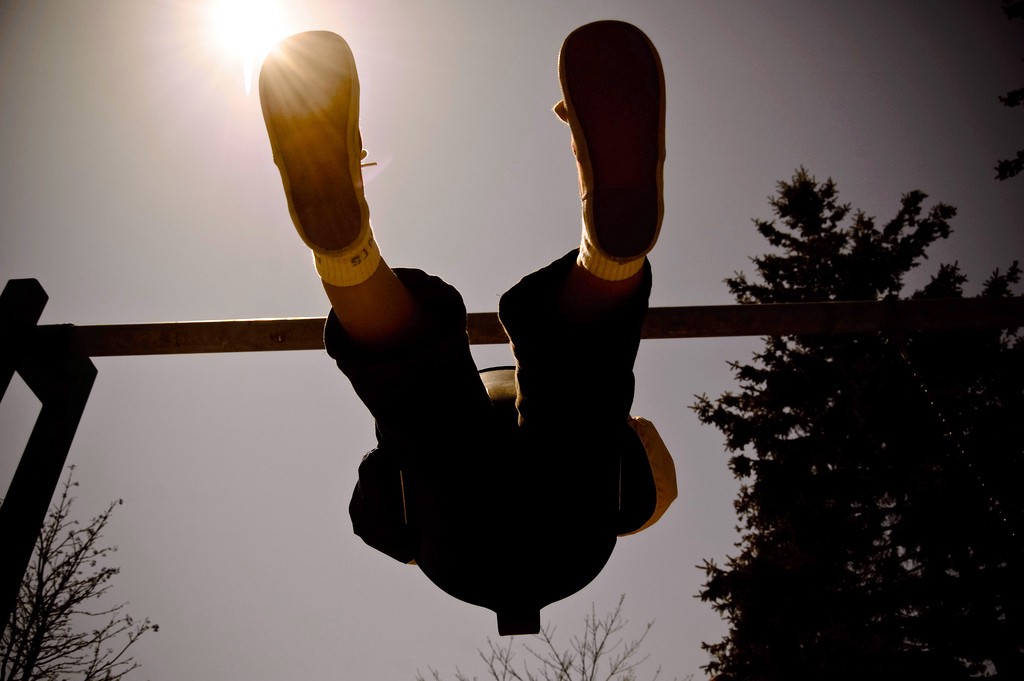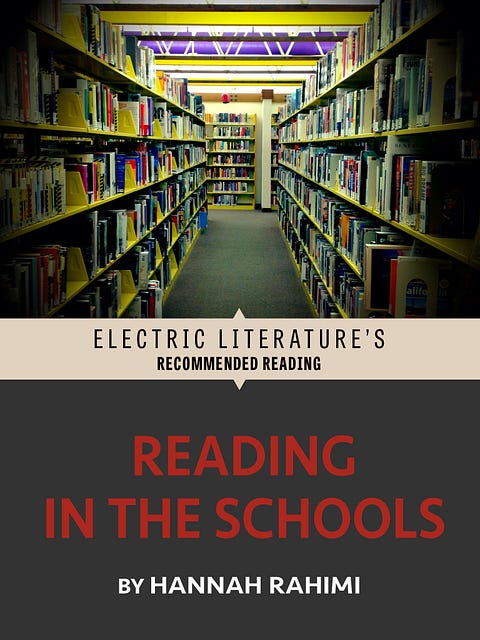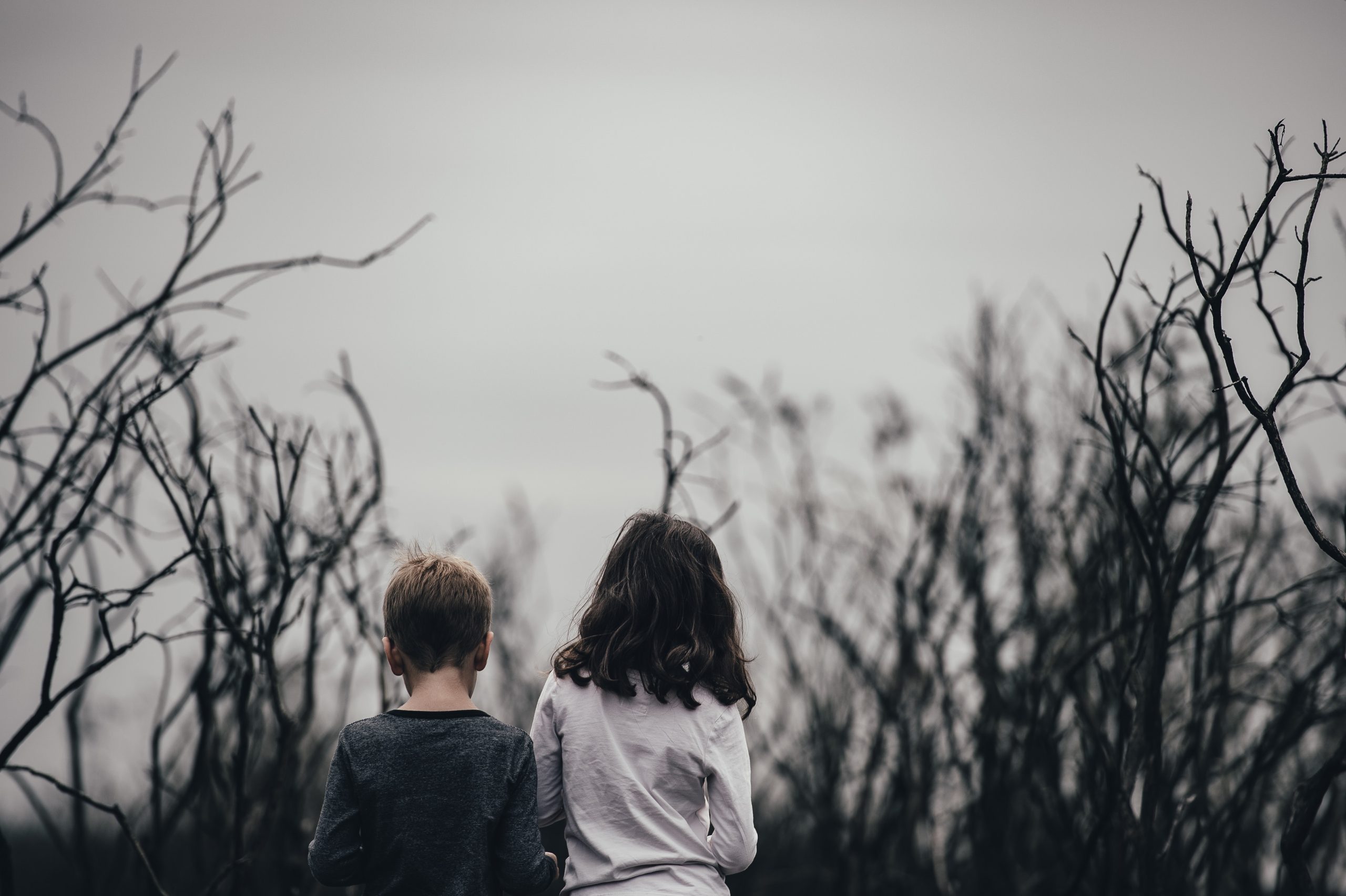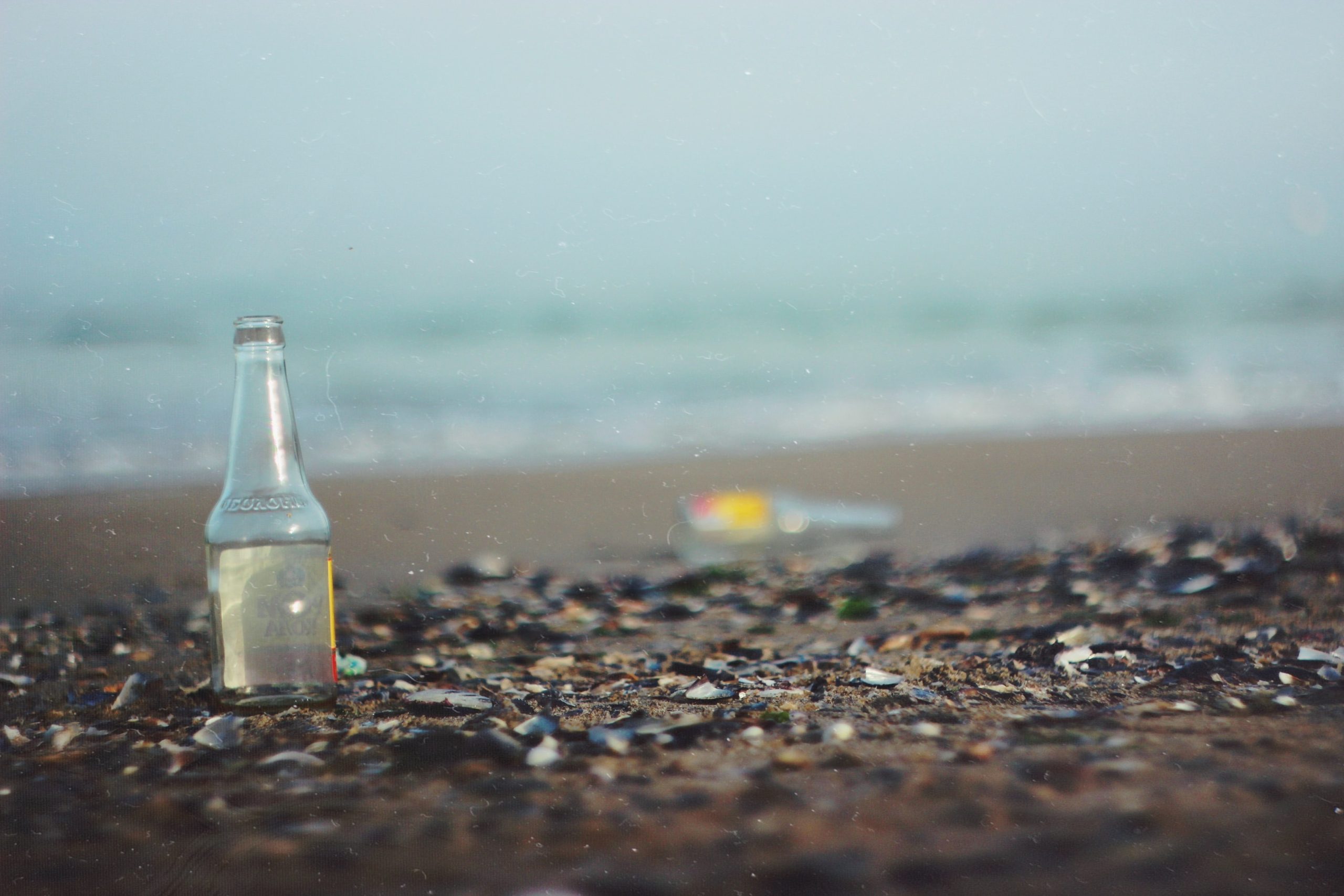Lit Mags
Reading In The Schools by Hannah Rahimi
A story about being too tall for your childhood bed

AN INTRODUCTION BY BRANDON TAYLOR
Hannah Rahimi is a gifted writer. With “Reading In The Schools,” she accomplishes the nearly impossible: a story that is by turns hilarious and devastating.
This is the story of Abby who, in the midst of a divorce and recently relocated back to her parents’ home, is casting about for a sense of purpose. She lands as a Reader in the Schools, tasked with reading to a small child for an hour each week. It is a task that she is perhaps unqualified for — not because she lacks the requisite literacy, but rather because she’s in what she terms a funny phase in life — and she soon finds herself outmatched by the wonderfully prickly, seven-year-old Magda.
What I found most remarkable about this story is the elegant way it moves between grief and sorrow, sometimes pivoting on a single phrase to deepen one or the other emotion. Indeed, I think that this story provides a striking example of how we laugh our way through the hardest moments of our lives. And in some cases, finding that bit of humor in our misfortune allows us to better understand ourselves, our situations, and the world around us.
It moves between grief and sorrow, sometimes pivoting on a single phrase to deepen one or the other emotion.
Astute readers might also be able to catch Hannah’s homage to Lorrie Moore’s superb “Dance in America,” but once this story reaches its peak, that resemblance falls away to reveal a startling and engaging originality.
In the end, this is a story about stories and their power to reinvent us. It’s about small kindnesses and their impact. It’s a story about giving yourself and the world a little grace to try again. And if you laugh or cry or both, then “Reading In The Schools” has done something right.
Brandon Taylor
Assistant Editor, Recommended Reading
Reading In The Schools by Hannah Rahimi
Hannah Rahimi
Share article
 The woman tells me I didn’t have to call. “Just sign up on the website,” she says.
The woman tells me I didn’t have to call. “Just sign up on the website,” she says.
“Oh, but I wanted to call,” I tell her. She doesn’t understand. Unless you are too old to use the internet, you are not supposed to want to call strangers.
Why did I want to call? I wanted someone to think highly of me when I signed up to read for Reading in the Schools. The internet doesn’t think highly of anyone unless you’re the right kind of active on twitter. Neither does the woman, it turns out.
I will be visiting Lake St. Public School for one hour a week to read to a little boy or girl in need of extra attention. Extra attention: these are the words from the Reading in the Schools brochure. On the phone, I tell the woman I would really like a girl. I tell her if everything goes well I might be able to do two hours. She is not impressed.
Why do I need someone to think highly of me? Shouldn’t Reading in the Schools be about reading in the schools and not about the person reading in the schools? In an ideal world. But is there any harm if my ego gets a boost while I devote an hour a week to the literacy and general well-being of a nice little girl?
As you may have guessed, I am in a funny phase of life. Not ha-ha funny. This is one way of saying I am divorced. Actually, not yet divorced. There are still papers to be delivered and signed. But for all intents and purposes I am divorced. I have cashed in five weeks’ vacation from my job at the Hamilton Archives and am staying at my parents’ house in West Toronto.
Actually, a little bit ha-ha funny. I make more jokes than I used to. I make them up from scratch.
What did one grain of sand say to the other before they broke up?
You’re such a beach!
“You’re planning to just mooch off us indefinitely?” This is my mother upon my arrival, half-kidding, half-Mussolini, half-tickled to finally use mooch in a sentence. My mother is the kind of woman who has a crossword with breakfast, Sudoku with lunch, bourbon with dinner, and cutthroat Scrabble with anyone who will play her over dessert. My father refuses to play. He is more of a rummy man.
I don’t mean to imply that divorce always = funny phase of life/moving in with parents. Only that in my particular case it has turned out this way. My future ex-husband, Arlo, is thriving, for example, post-separation.
Here is how we met: I was walking down College with a box of cannoli when someone behind me shouted, “Veronica! Hey, Veronica!” I turned around. There was a man: lion-mane hair, bowleg walk: Arlo, though I didn’t know it yet. Eyes met, sweat dripped, guts lurched, cannoli was shared, then fluids, terms of endearment, keys, rings, subtle barbs, pregnant silences, suspicions, admissions, apologies, retractions of apologies. Then rings were removed, flung into compost bin, retrieved from compost bin, rinsed in sink, etc.
To clarify, my name is not Veronica. My name is Abby. According to Arlo, the back of my head and the back of my navy pea coat are dead ringers for the back of Veronica’s head and the back of her navy pea coat. For a while Arlo and I told that story at parties. We stopped when we realized we were broadcasting to the world that our relationship was founded on a misunderstanding.
Why did I turn around? I hear a name that isn’t mine and turn in total obedience. You think I’m Veronica? I’ll be Veronica! What kind of person does that?
Of course, when I turned around, Arlo understood I wasn’t Veronica, but all the same there is a part of me that has been living on as Veronica these past four years. She is spunky and a little bit French. Now she is gone, along with my favorite mugs, and I am left to deal with what remains of Abby.
My mother tells me that doing nothing will make me depressed. “I’m already depressed,” I tell her. “And anyway, I am soon to be a Reader in the Schools.”
“Are you sure you’re qualified?” she says.
Magda and I sit in a corner of the school library on cushions that smell like apple juice. “What do you want to read?” I say.
“When is snack time?” she says.
Magda is not what I expected. She isn’t bigger than the other children but I get the sense that she is denser. If I were to drop her in water, she would sink twice as fast as another girl her age. Which is seven. She has a smoker’s voice and glasses with yellow plastic frames.
I pull Corduroy off the shelf and Magda plunks into my lap. Such affection for a total stranger — where are her defenses? I wasn’t like this as a child.
Corduroy, a stuffed bear, is getting into trouble, losing buttons, breaking into department stores. Magda is an impatient child who likes to flip the page before I finish reading. I want to tell her to slow down, that she will regret living this way, that before she knows it there will be no more pages to turn, and then what?
We finish Corduroy with 56 minutes to go.
In the middle of Clifford the Big Red Dog a boy sidles up. He looks like an illustration, all ink-splash and sprite. Magda gets territorial and elbows him away. “Magda!” I say, but she just shrugs. “That’s Devin,” she tells me. “He’s always doing the wrong thing.”
When I bring Magda back to her classroom Mrs. Gordon says, “Thank you, Abby. We’re very grateful for your support, aren’t we, Magda?”
Magda is staking her claim on goldfish at the snack table, and waves dismissively. “What did you read?” asks Mrs. Gordon. When I tell her, she is aghast. “Those are pre-school books,” she says.
Well I enjoyed them.
Arlo sends an email with the subject What if we just. In the body of the email is a hope that I am doing well. He may sound nice but it’s important to remember that he is sleeping with his daughter’s friend. Now that I am gone, she has moved in and is probably drinking from my “I Hate Broccoli” mug. A friend of his daughter. You’d think his daughter, Caroline, would mind, but apparently she is very enlightened and never thought I was right for him anyway. I have been trying to figure out why she would feel this way. Arlo once showed me pictures of his boyhood in Edmonton and Caroline said, more to him than to me, “Roland Barthes says photography is like a puncture wound.” Caroline is a grad student. Arlo is a professor of linguistics. I’ve gotten my share of degrees but I have never liked people who mention French intellectuals in casual conversation, so I said, “Roll-on Bart? Sounds like a Simpsons-themed deodorant!”
I guess you could say I made my judgment before she made hers, which is some consolation.
What if we just what, Arlo?
My father is baking corn muffins. To my knowledge he hasn’t made corn muffins since I was six years old. That was around the time we engaged in a practice called Mean Cuisine. Mean Cuisine = putting surprising things in my mother’s food. For example, soy sauce in coffee.
Another thing I did at six was chinning. I invented chinning. I used my chin as a weapon by digging it into the arm flesh of my enemies.
When my father cooks he listens to the CBC. Early in life, I learned that listening to the radio is a conversation. When Stuart McLean says, “Hello, I’m Stuart McLean,” at nine o’clock on Saturday morning, my father looks up from his corn muffin batter and says to the radio, “Hi Stuart.”
I myself tend to talk to the radio in a more confrontational manner. I take issue with voices of authority. The weatherman, for one. “Real Feel?” I said to him yesterday when he inflated the temperature by six degrees and then smugly prescribed light layers. “Who are you to tell me how it really feels?”
I am curious about Magda’s home life but I do not want to pry. Instead I ask, “Do your parents know about me?”
“They’ve never met you,” she says.
“Yes, but have you told them we are reading books together?”
“Sure,” she says. Sure. Like she’s placating me.
I am ashamed. I say, “You pick the book today, Magda.” I say, “Remind me to teach you about chinning.”
“What do you read the little girl?” my mother asks.
“This and that,” I tell her. “Whatever’s on the shelves.”
My mother doesn’t like this answer. She thinks the majority of children’s books involve cartoon animals who smile too much, i.e. Clifford the Big Red Dog. “Children are much smarter than we give them credit for,” she says. “They can handle intelligent, nuanced animals like Anansi the Spider and Brer Rabbit. Clifford is an idiot,” she says, “created by adults who think children are idiots.” She suggests I take some of my old books to read to Magda. She shows me where she keeps them in the attic.
“Thank you,” I say.
She says, “Arlo called.”
“Smell that?” I say to Magda. “That’s the smell of books. When I was your age I thought it smelled like cake.”
She sniffs and considers it. “It sort of does,” she concedes.
I can tell she likes the idea because she breathes like a yogi for the rest of the hour. I read her a book I brought from the attic. Miss Rumphius. Before Miss Rumphius was named after her marital status, when she was just a girl called Alice, she spent a lot of time with her grandfather, a painter. Sometimes he would let her paint the skies into his landscapes, which Magda and I agree would be quite the honor. Alice’s grandfather encouraged her to lead a life of adventure and then settle by the sea when she was finished with traveling. The caveat, because isn’t there always a caveat, was that she do her part to make the world beautiful.
“Wait,” says Magda, when I go to flip the page. She says, “Look at her hair.”
It is true that Alice has wonderful hair, a flaming cloud. With age it streaks white in all the right places. When we get to the picture of her house by the sea, we sigh. A gate, a mound of golden grass, a filigree cottage over water.
“Do you think it’s the ocean?” I ask Magda. “Or a lake? Or a pond?” Sometimes it is hard to come up with the right questions. I try to be educational.
“I think it’s a bay,” says Magda with a hush. In her voice, gravelly and reverent, “bay” is everything we’ve dreamed of. I hear a small gasp of agreement and realize that Devin is standing over my shoulder, hanging onto the bookshelf.
“Sit,” I say, and he does. Secure in my lap, Magda tells Devin he can turn the next page.
Friend to all! Reader extraordinaire! Champion of Reading in the Schools!
Wouldn’t it be nice if. Lately I’ve been thinking. It occurred to me. In the body of email after email, Arlo hopes that I am well. An observation that CBC does not sound the same when no one talks back to it. An offer: Do I want him to send along my favorite mugs?
What did one egg say to the other when it started crying in the café?
You’re cracking up.
This happened, minus the egg part. After avoiding most people in the weeks that I’ve been living with my parents, I let my friend Carol convince me that getting out was paramount to my recovery. Recovery. Like divorce is an illness? Then again, I have been spending more than the usual time in bed. We met yesterday at one of those cafés that is ruthlessly cool, all reclaimed wood and austerity. Everyone in that café is a contemporary dancer. They all live in the same neighborhood and drink cortados.
Carol sat me down, got me a mocha, blasted me with her best Dr. Phil look and said, “So how are you?” Then came the egg incident, minus the eggs. Actually she didn’t say, “You’re cracking up.” She said, “You’re a wreck!” Seconds later, she was ashamed to have made a judgment on my sanity and tried to cushion it with a hand on my hand. “You’re better off without him,” she said. “You’ll meet someone else,” she said (with her eyes on her latte art). “The best thing is to keep busy,” she said.
“I am a reader,” I told her, “for Reading in the Schools.”
Here goes. In the body of the email, a hope that I am well. A heads-up to check my mailbox, the real one not the virtual: the papers are on their way.
My father says that when he met my mother he knew within an hour he’d spend his life with her. I do not believe in that kind of knowing. I do not.
When Magda sees me at the door of her first grade classroom she runs over to throw her arms around my waist.
“Hey there Magda,” I say as I stumble from the force of it. There is something Olympian about her, and eager. It has been a long time since somebody hugged me with pure, eager strength. Together we walk down the hall to the library. We say hello to Ms. Margles at the desk. I sign our names in the Reading in the Schools ledger.
I breathe in and say, “What’s that great smell?”
Magda says, “Books!”
We giggle. Such is the pleasure of routine. We retire to our corner, but there is Devin on our cushion, with a grown-up of his own, a small woman with a pixie cut. Devin doesn’t even glance our way. Has he procured his own reader? What a picture the two of them paint, all button nose and eyelash.
I have always marveled at women with pixie cuts. How do they acquire such small skulls, such bird-bone faces? Once a year I paste my photo into pixie cuts on those websites where you can pair your face with somebody else’s hair, and every year the result is the same: a square peg in a round hole (i.e., a heart-shaped face in an elf toupee).
I will admit I feel defeated, though it is unclear by what: the loss of territory? The great hair? Magda and I march hand in hand to another corner. She gives the bookshelf a little kick before she sits. “Devin is always doing the wrong thing,” she says.
We are in the mood to read Miss Rumphius a second time. Near the end of the book, when she is old and somewhat infirm and living in her enviable cottage by the sea, Miss Rumphius has to come to terms with the fact that she hasn’t done her part to make the world beautiful. She has only made it beautiful for herself, with her nice living situation and backyard full of flowers. What selfishness, she realizes. What sadness. In sympathy, the illustrations fade to pastel. This time, as last time, Magda looks up at me when we get to this page. She doesn’t say a word, just raises her eyes to mine with — what? Distress, bewilderment, entreaty. She has unknown the ending so that she will feel these things as she felt them the first time. So that she will feel the full weight of the joy that comes after.
Miss Rumphius is out for a walk, windblown chic, when she notices lupines in the grass. The wind from the sea has distributed the seeds from the lupines in her garden. Then, of course, comes Miss Rumphius’s revelation. She spends the rest of her days strolling the countryside in a marvelous cloak, flinging seeds every which way, giving lupines back to the world.
My mother sits at the foot of my bed. “Will you help me with the crossword?” she asks, and I know the divorce papers have arrived.
What is the word for a throat that’s sore with sadness?
What is the word for the phantom of a body around your body? (Like the limbs that ache after you lose them.)
What is the word for the feeling of being too tall for your childhood bed?
Soon I will have to return to work. I will have to find an apartment. Soon. I will not be able to be a reader in the schools when I am working full time in Hamilton. What was I thinking, signing up for Reading in the Schools when I only had five weeks?
As if they know of my betrayal, the children are gone from the classroom. There is a note for me on the door. Dear Abby, Grade One is outside celebrating spring. Magda would love for you to join us. Signed, Mrs. Gordon.
In the playground the whole school wriggles with abandon. One of the teachers has turned a boombox out the window to play Paul Simon. Teachers dance, children dance. The littlest ones bounce in a crouch while the bigger ones articulate their shoulders, elbows, hips, knees, feet.
Devin hangs between two girls who are very tall and competent-looking. They maneuver him around the yard saying, “One, two, three, up you go!”
Magda sits alone on a swing, watching people dance. I realize I know almost nothing about her. I don’t know whether she is popular or shunned or somewhere in between. Is Mrs. Gordon fond of her? Do the children mock her glasses, her funny strength? Is there something in her for them to admire?
She takes off her glasses and rubs one eye with her fist, like a baby. It could be that she is crying but I don’t think so. I think she is tired. Not tired. Weary. She holds on loosely to the chains and sits chimp-like with her knees up, heels resting on the edge of the swing. Then she lowers her head to her knee, rests her chin there, presses it — she is chinning.
Why stop at photography, Caroline? Sight is a puncture wound. Why stop at puncture wound? Sight gores me. The sight of Magda weary on the swing, chinning her own knee.
The smile on her face when I approach: glass shattering to beads. I have to tell her; of course I have to tell her. But not yet.
“We don’t have to stay out here,” she says firmly. “We can still go to the library.”
“Great,” I say, with as many exclamation points as I can muster. “Let’s go.” But she just sits there, eyeing the playground.
“Abby?” she says. She sounds more formal, more deliberate than usual, perhaps because she’s never actually addressed me by name before. I like the way she says it, as if the name belongs to someone sharp and curious.
“Yes,” I say.
“Could you push me, please?”
I see a child on a swing and don’t immediately think to push? Where are my instincts, my adult skills? I am better with indoor activities, I tell myself. Reading, for instance. Dutifully, I shuffle around and place my palms on her slouching back. “Okay,” I say. “Here goes.”
My first push is laughable, a mere nudge, but she makes the best of it, pumping her legs to gain momentum. I do better the second time, and soon enough she is sitting up straight and traveling in regal sweeps. Why don’t people do this more often? Swinging requires no eye contact, no speech. It is a relief to apply yourself to nothing but the gradual gathering of someone else’s speed.
I grow ambitious. I remember, from my own days on the playground, the currency of choice for popular parents and reckless siblings: the underdog. But how exactly does it work? I was always the one swinging while someone else took care of the mechanics. What if I accidentally knock her off? If she kicks me in the head? From the vantage point of the ground, the potential for awkward calamity seems endless.
It is possible, as my father likes to say, that I am overthinking the matter. I do my best to breathe deeply. I follow through my push until Magda is just beginning to arc upwards, and then I let go and charge forward, ducking beneath her rising feet, as she shrieks into the air. That shriek, all terror and delight — the enviable sound of a child forgetting herself.
When I stop running, I turn back to watch. How long the motion stays with her; how far she flies.








